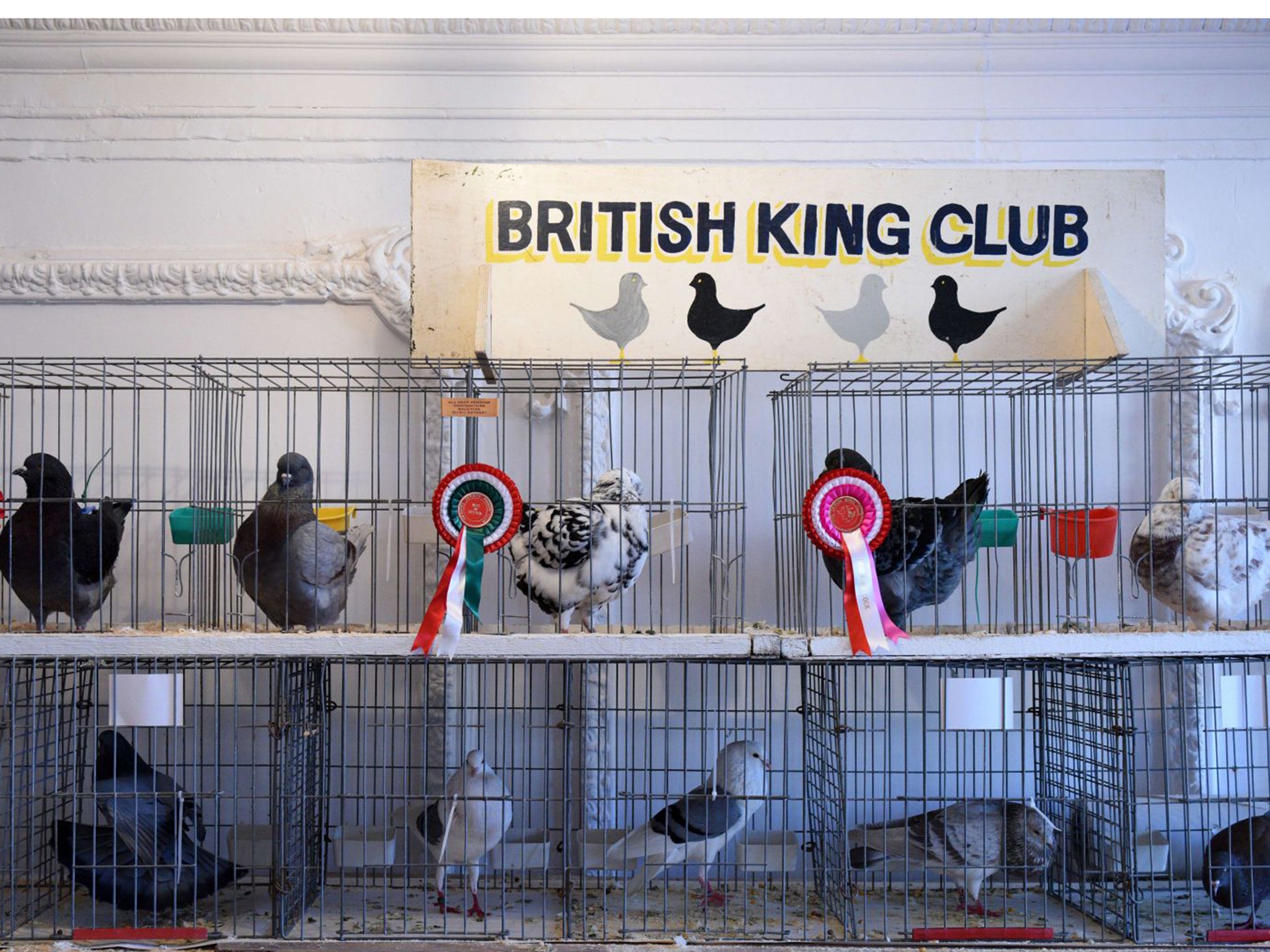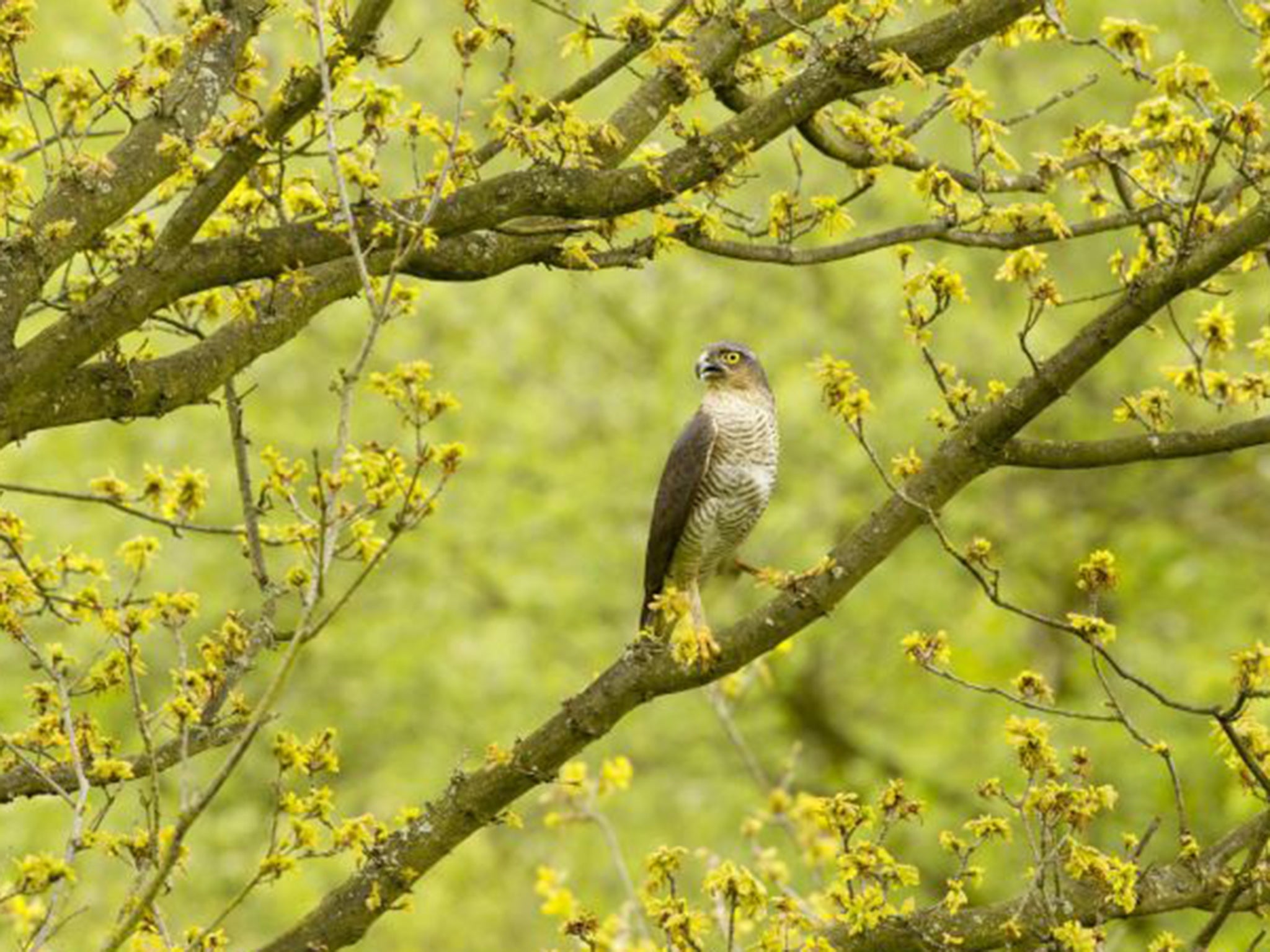Pigeon fanciers and the RSPB wage battle in the skies over threat posed by birds of prey
The Raptor Alliance has launched a lobby campaign seeking support from prospective parliamentary candidates for a change to the 1981 Wildlife Act

Your support helps us to tell the story
From reproductive rights to climate change to Big Tech, The Independent is on the ground when the story is developing. Whether it's investigating the financials of Elon Musk's pro-Trump PAC or producing our latest documentary, 'The A Word', which shines a light on the American women fighting for reproductive rights, we know how important it is to parse out the facts from the messaging.
At such a critical moment in US history, we need reporters on the ground. Your donation allows us to keep sending journalists to speak to both sides of the story.
The Independent is trusted by Americans across the entire political spectrum. And unlike many other quality news outlets, we choose not to lock Americans out of our reporting and analysis with paywalls. We believe quality journalism should be available to everyone, paid for by those who can afford it.
Your support makes all the difference.Conservationists have reacted with dismay to the call from pigeon fanciers to be granted powers to trap and relocate protected species of birds of prey.
The Raptor Alliance, which represents 42,000 pigeon fanciers, has launched a lobby campaign seeking support from prospective parliamentary candidates for a change to the 1981 Wildlife Act. The proposed amendment to this key piece of conservation legislation would allow pigeon fanciers to apply for licences to relocate the protected species, which the Alliance says are responsible for the “devastating attacks” on racing pigeons and pigeon lofts that kill up to 30 birds a month.
The Royal Society for the Protection of Birds has labelled the push to trap peregrine falcons and sparrow hawks as unscientific and says it flies in the face of conservation efforts.
Jeff Knott, head of nature policy at the RSPB, said: “The story of our recovering raptor numbers is a fantastic success story. It’s sad that not everyone in society is celebrating that. The number of racing pigeons taken by raptors is relatively small, with various studies showing most lofts of 70 birds only lose about five birds a year to peregrine falcons and sparrow hawks.”
The Raptor Alliance disputes these figures. It is calling for a change in the law to avoid a “nightmare scenario” in which pigeon racing’s future is jeopardised by raptor attacks as well as the sport’s “ageing” demographic.
Birds of prey numbers have risen across the UK in the past 10 years after several decades of persecution by rogue game keepers and pigeon fanciers as well as from the effects of pesticide use. However, the RSPB says numbers of peregrine falcons and sparrow hawks are still vulnerable in some areas and that trapping birds has been proven to be “distressing and counterproductive”.
Instead, the wildlife body recommends pigeon fanciers alter race routes to avoid raptor hunting grounds. It also suggests such things as hanging up old CDs around pigeon lofts as non-lethal deterrents.
Pigeon racing has been in decline since the 1970s, when the former footballer and England captain Gerry Francis famously kept pigeons. Fanciers now fear they are “becoming an oppressed minority” in the face of the powerful bird conservation lobby, according to Stewart Waldrop, president of the Royal Racing Pigeon Association.
He said: “Our members accept some losses from peregrines and sparrow hawks on racing routes; it’s part of the challenge. But what they don’t accept is the indiscriminate taking of birds from their lofts.”
Dave Stuart, 65, a pigeon fancier from Camborne in Cornwall, has kept racing birds for more than 40 years, but says attacks by raptors have killed nearly 100 of his birds in the past five years. He said: “It’s absolutely dreadful that the RSPB are setting up so many sites for breeding and letting so many peregrine falcons and sparrow hawks into the country. As breeders, we’ve got no protection at all ... but we love birds. The problem is that the RSPB are so strong and are not concerned with protecting racing pigeons or songbirds.”

A charge the RSPB says it “absolutely rejects”. A source at the charity pointed out that while it sympathised with fanciers, racing pigeons are not legally classified as wildlife and the law simply does not allow for the trapping of protected animals.
Mr Knott said: “What we have to remember is that bird-of-prey predation is an entirely natural process and these species are recovering from decades of persecution and pesticide use.”
Last month, a peregrine falcon was found shot dead at Derbyshire Wildlife Trust’s headquarters in Belper, where it had been nesting in a mill tower. Although cases of pigeon fanciers killing birds of prey are very rare, Mr Waldrop fears some pigeon fanciers may take matters into their own hands. He said: “We are at desperation stage, and the trouble is desperate people do desperate things, which is not the way things should happen.”
Subscribe to Independent Premium to bookmark this article
Want to bookmark your favourite articles and stories to read or reference later? Start your Independent Premium subscription today.
Join our commenting forum
Join thought-provoking conversations, follow other Independent readers and see their replies
Comments